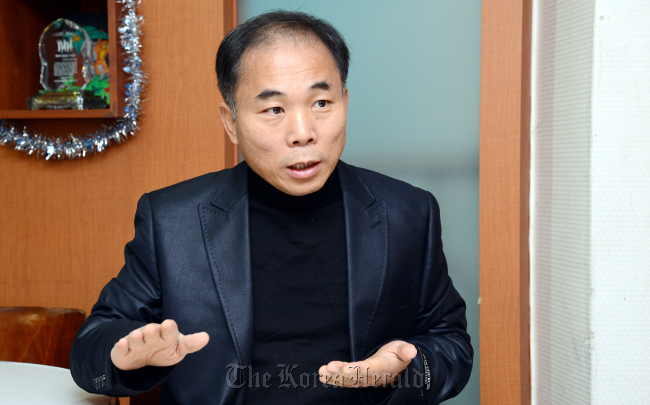Lee Ho-taeg and Cho Myung-sook, an activist couple, went on their honeymoon to China in 1997, with a secret mission to bring 13 North Korean defectors to the South.
They fled thousands of kilometers to cross the Chinese border to seek refuge at the South Korean Embassy in Vietnam. They had to stay locked in hotel rooms waiting for the entry permits from the Seoul government.
After Seoul backpedaled for days, they were forced by Vietnamese authorities to return to China, and were stranded on the border as Chinese guards denied their reentry.
The refugees were sent back and forth four or five more times until they snuck into the wilderness of China.
Lee and Cho, who had come back to Korea believing Seoul’s pledge, flew to China again and finally succeeded in bringing in 11 refugees, with two choosing to stay in China.
“I was deeply disappointed at the time with the Korean government,” Lee, the 54-year-old former student activist, said. “No country accepted them and no government wanted to take responsibility of the thorny case.”
Two years after what later became known as the “ping-pong refugees” incident, he founded Refuge PNAN, a nongovernmental organization for international refugees.
The group helps North Koreans and other nationals who fled their countries due to political repression or conflict.
His wife is now a vice principal of a school for young North Koreans in Seoul.
A dormitory, run by his organization Refuge PNAN, currently gives shelter to around 20 asylum seekers, most of whom are Ethiopian and Congolese.
One of the staff was conducting an interview of three Ethiopians while Lee sat for an interview with The Korea Herald.
“What these people need the most is an open and welcoming mind,” Lee said.
“The attitude of many Koreans toward asylum seekers, however, is not that amiable, if not hostile.”
Article 14 of the Universal Declaration of Human Rights states that everyone has the right to seek and take asylum. But the process of seeking refugee status is very hard.
The first interview of an asylum seeker, according to Lee, usually takes two or three hours since detailed descriptions of their circumstances back in their home countries are needed in applying for refugee status.
Further interviews and sometimes field research follow, if necessary, to gather strong evidence that shows the refugees face life-threatening risks.
In 2004 Lee went to Chittagong Hill Tracts in Bangladesh, where an ethnic minority called Jumma lived.
The group was being oppressed by the Bangladesh government.
He found evidence of repression and the possible execution orders for 12 Jummas who applied for refuge in Korea, and was able to help them obtain official refugee status.
He also went to other nations including Iraq and Congo simply to prove that refugees are in danger of persecution and need help.
In many societies, prejudice and fear are still prevalent regarding refugees, with many thinking they are poor and want a free ride with social benefits; that they could take available jobs away; or that massive inflows of refugees could occur.
As needing to seek refuge is an unplanned, unexpected and instantaneous occurrence that could happen to anyone, many people who seek shelter in other countries wish to return after the situation in their countries settles down, according to Lee.
A 2010 survey of 395 people who stayed with or without refugee status in Korea showed that 62 percent said they wanted to return to their homelands if the situation improved and only 20 percent answered they wanted to stay.
Most of the respondents came from countries hit by long-lasting political turmoil or civil war, such as Liberia, the Ivory Coast and the Republic of Congo.
“There is little possibility of a massive inflow of refugees since they take shelter in nearby countries. For them coming to Korea for refuge, most of the time, is incidental,” Lee said.
“And refugees are not a burden. We provide them shelter and they can enrich our culture. We give just a little care for them and we can broaden our views and utilize their language skills,” Lee said.
One Kurd whom Lee had helped get refugee status in Korea joined the Zaytun troops, which were dispatched to Iraq in 2004, as a translator.
Many asylum seekers, however, fail to be granted refugee status.
Only 48 people among 1,061 applicants, 5 percent, were given refugee status from January to November 2012.
Revised laws for refugees that go into effect in July require a detailed process for a refugee application such as recording interviews and a lawyer’s participation.
It states legal grounds to give financial assistance, support for their livelihood, and work permits for asylum seekers including those who are in the application process and in appeal after rejection.
The laws will also allow people who are granted refugee status to invite their immediate families.
“The lands of Korea and the entire world do not exist only for one nationality; they are for everyone. Everyone has the right to take refuge anywhere as we do,” Lee said.
By Kim Young-won (
wone0102@heraldcorp.com)







![[Today’s K-pop] Blackpink’s Jennie, Lisa invited to Coachella as solo acts](http://res.heraldm.com/phpwas/restmb_idxmake.php?idx=644&simg=/content/image/2024/11/21/20241121050099_0.jpg)
